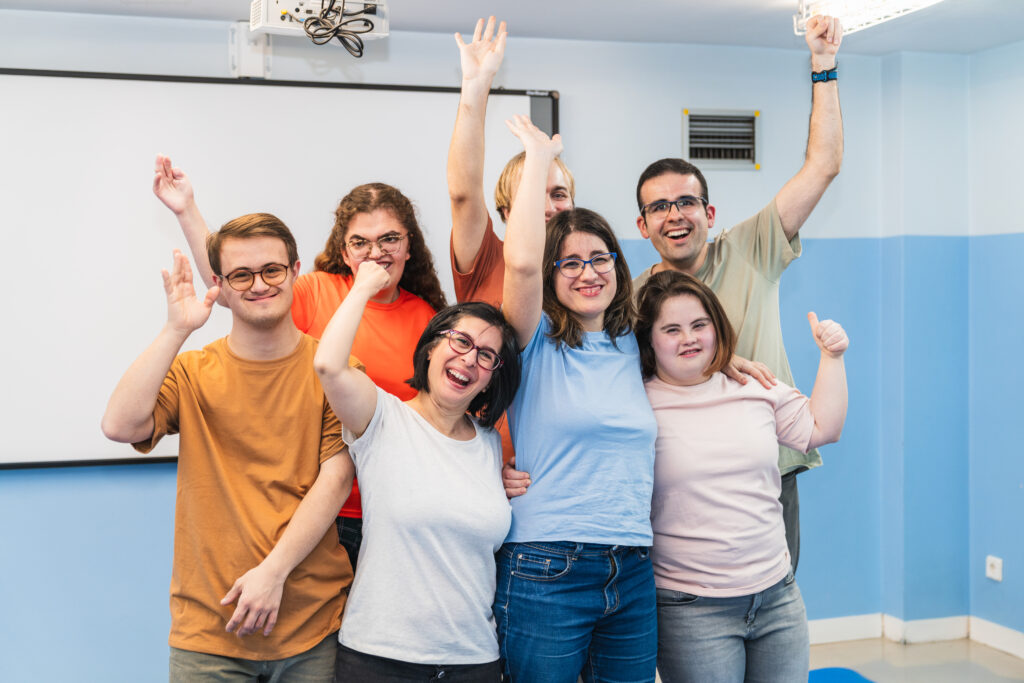Navigating adulthood comes with its own set of challenges for everyone, but for individuals with Autism Spectrum Disorder (ASD), the transition can be especially daunting. While ASD presents unique strengths, it can also bring difficulties in understanding and navigating social interactions, making the need for ASD social skills training a critical aspect of preparing for adult life.
Social skills training offers a structured way for individuals with ASD to build the tools they need to connect, communicate, and thrive in various aspects of life, including relationships, employment, and independent living. In this article, we will explore why social skills training is so essential, the benefits it provides, and how it contributes to long-term success in adulthood.
Understanding Social Skills Challenges in ASD
Social skills encompass a wide range of abilities, including understanding body language, maintaining eye contact, interpreting social cues, and participating in conversations. For many individuals with ASD, these skills don’t come naturally and may require explicit instruction and practice.
Some common challenges faced by adults with ASD include:
- Difficulty with Nonverbal Communication: Reading facial expressions or body language can be challenging, leading to misunderstandings in social situations.
- Challenges in Building Relationships: Forming and maintaining friendships or romantic relationships often requires nuanced communication that may be hard to grasp.
- Struggles with Workplace Interactions: Professional environments often demand collaboration, small talk, and interpreting unspoken expectations, which can be overwhelming.
- Increased Anxiety in Social Settings: Social situations can cause stress or sensory overload, making participation even more challenging.
These challenges can hinder opportunities for meaningful relationships, career advancement, and personal independence. This is why targeted ASD social skills training is not just helpful but essential.
What Is ASD Social Skills Training?

ASD social skills training refers to structured programs designed to teach individuals with autism how to engage effectively with others. These programs often include a mix of one-on-one coaching, group sessions, and role-playing exercises tailored to the unique needs of the participant.
Some common approaches include:
-
- Behavioral Interventions: Using techniques like Applied Behavior Analysis (ABA) to reinforce positive social behaviors and reduce behaviors that impede interaction.
-
- Social Stories: Short narratives that explain specific social situations and appropriate responses, helping individuals understand what to expect.
-
- Peer Modeling: Observing and learning from neurotypical peers in structured environments.
-
- Role-Playing Exercises: Practicing conversations, greetings, and problem-solving in a safe and controlled setting.
By breaking down social interactions into manageable steps and providing guided practice, these programs help individuals with ASD develop the confidence and skills to navigate the complexities of adult life.
Why Is ASD Social Skills Training Crucial for Adulthood?
1. Building Meaningful Relationships
Human connections are at the heart of a fulfilling life. Friendships, romantic relationships, and family bonds provide emotional support and a sense of belonging. For adults with ASD, social skills training can bridge the gap between wanting meaningful relationships and knowing how to create them. Training helps individuals learn how to:
-
- Initiate and maintain conversations.
-
- Interpret others’ emotions and respond appropriately.
-
- Resolve conflicts effectively.
By improving these skills, individuals with ASD can cultivate deeper, more rewarding connections with others.
2. Enhancing Employment Opportunities
The workplace is a highly social environment, requiring teamwork, communication, and adaptability. Adults with ASD may excel in technical or specialized tasks but struggle with the social nuances of the workplace. Social skills training equips them with the tools to:
-
- Participate in job interviews confidently.
-
- Collaborate effectively with colleagues.
-
- Adapt to unspoken workplace norms.
For example, training might include practicing how to greet coworkers, manage workplace disagreements, or handle feedback constructively. These skills can significantly improve employability and job retention.
3. Promoting Independence
Independent living often involves interactions with landlords, shopkeepers, healthcare providers, and others in the community. Social skills training helps individuals navigate these everyday interactions by teaching:
-
- Polite and effective communication.
-
- Problem-solving in unfamiliar situations.
-
- Building self-advocacy skills, such as expressing needs or setting boundaries.
With improved social skills, adults with ASD can approach independent living with greater confidence and autonomy.
4. Improving Mental Health
Social isolation can lead to feelings of loneliness, depression, and anxiety, which are common among adults with ASD. Social skills training addresses this by empowering individuals to engage more effectively with others, reducing social anxiety and fostering a sense of connection. The benefits extend beyond social success, as improved mental health often leads to greater overall well-being.
The Benefits of Early and Continuous Training

Social skills training is most effective when introduced early and reinforced consistently. Starting in childhood allows individuals to develop foundational skills that can be built upon throughout life. However, it’s never too late to begin. Adults with ASD can still benefit greatly from targeted programs tailored to their specific needs and life goals.
Lifelong Learning
Social dynamics are complex and ever-changing, meaning the need for learning doesn’t stop at a certain age. Continuous training allows individuals with ASD to adapt to new challenges, whether transitioning from school to work, entering new relationships, or adjusting to community living.
Tailored Support for Adults
Many programs for children focus on play-based or academic scenarios, which don’t fully address the challenges faced by adults. Adult-specific training emphasizes real-world situations, such as:
-
- Networking for job opportunities.
-
- Navigating online communication and social media.
-
- Managing romantic relationships and family dynamics.
By focusing on practical, age-appropriate skills, these programs ensure that participants are prepared for the unique demands of adult life.
The Role of Caregivers and Community
ASD social skills training doesn’t happen in isolation. Caregivers, educators, employers, and peers play a critical role in creating an environment where individuals with ASD can practice and apply what they’ve learned.
Encouraging Practice
Caregivers and family members can reinforce training by providing opportunities for real-world practice, such as arranging social outings or role-playing scenarios at home.
Creating Inclusive Environments
Employers and community organizations can support adults with ASD by fostering inclusive spaces that value diversity and provide accommodations as needed. Simple adjustments, such as clear communication or quiet spaces, can make a big difference.
Leveraging Technology
Technology has opened up new possibilities for social skills training. Apps, virtual reality simulations, and online communities offer innovative ways to practice and build skills in a safe, controlled environment.
Overcoming Barriers to Access
Despite its importance, access to ASD social skills training can be limited due to cost, location, or lack of awareness. Here are some ways to overcome these barriers:
- Seek Supportive Resources: Many organizations offer scholarships, grants, or sliding-scale fees to make programs more affordable.
- Leverage Online Options: Virtual programs and resources can bridge gaps in geographic accessibility.
- Advocate for Inclusion: Raising awareness about the importance of social skills training can encourage schools, workplaces, and communities to invest in these programs.
By advocating for greater access, we can ensure that more individuals with ASD have the opportunity to benefit from this essential training.
Conclusion
ASD social skills training is a vital investment in the future of individuals on the autism spectrum. By equipping them with the tools to connect, communicate, and thrive, social skills training unlocks opportunities for success in relationships, careers, and independent living. Moreover, it fosters self-confidence and emotional well-being, paving the way for a fulfilling and meaningful life.
Whether introduced in childhood or tailored for adults, social skills training is a lifelong journey that supports individuals with ASD in reaching their full potential. As a society, we can support this effort by creating inclusive environments, providing accessible resources, and recognizing the incredible value of investing in the social development of individuals on the autism spectrum.
How New Direction for Young Adults Can Help You
At New Direction for Young Adults, we specialize in ASD social skills training to help young adults build the confidence and tools they need to succeed in relationships, work, and independent living. Our programs provide a safe, supportive environment where individuals can develop essential communication and social skills tailored to real-world situations.
Whether for yourself or a loved one, we’re here to guide you toward a brighter future. Through group sessions and individualized coaching, we help participants foster meaningful connections and achieve independence. Contact us today to learn how we can support your journey to success!




